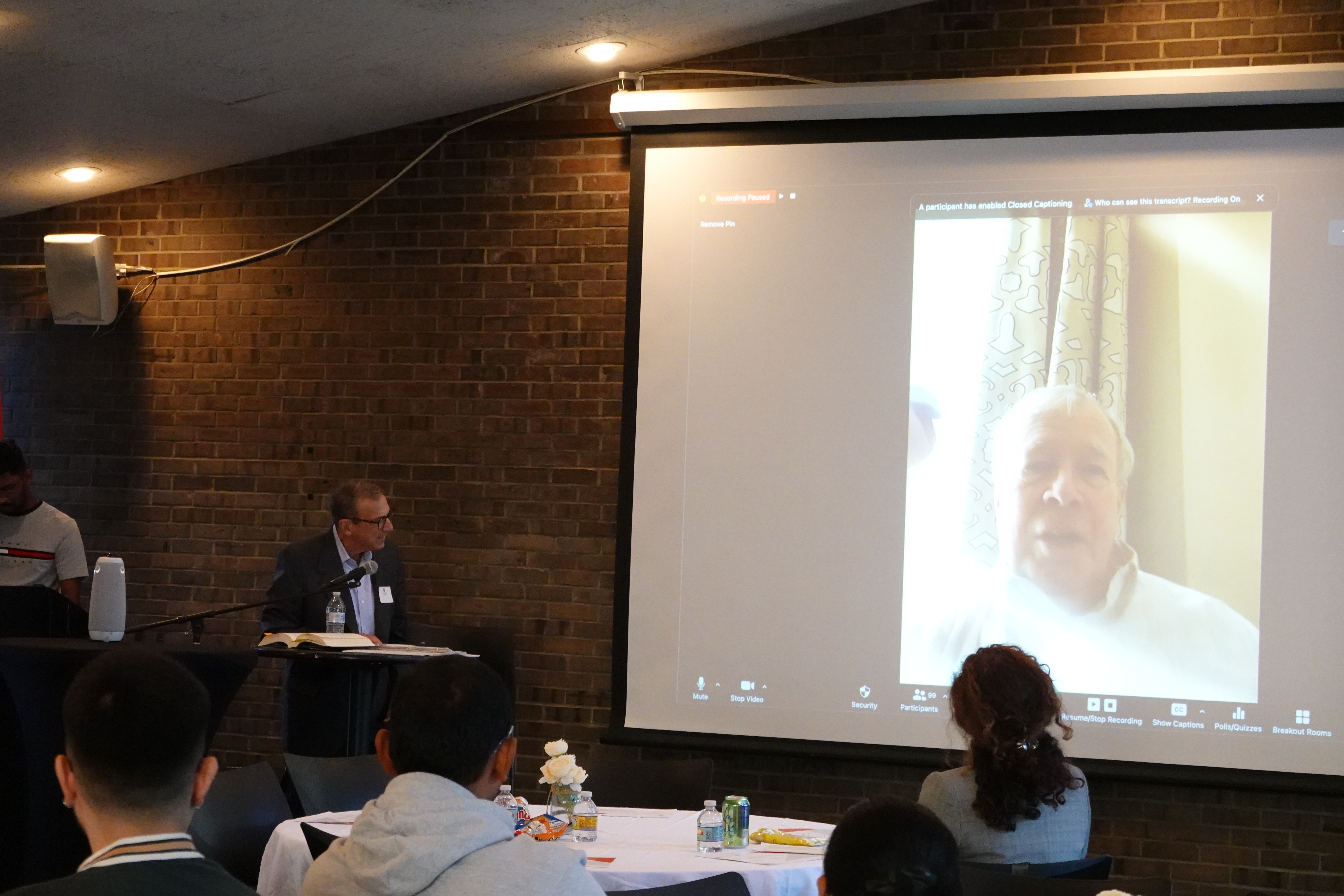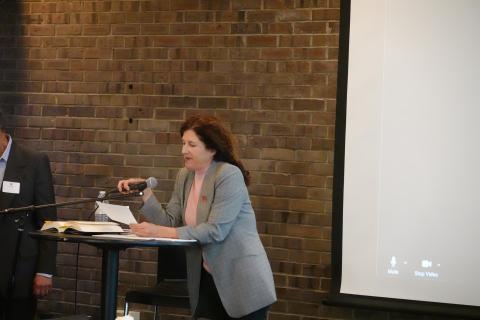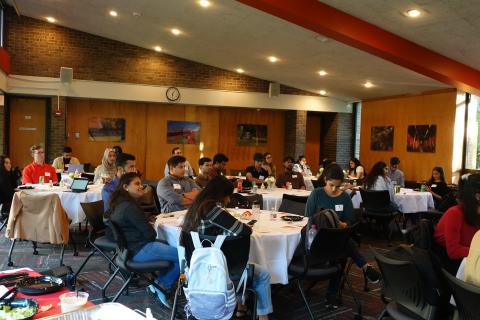It’s no secret that artificial intelligence (AI) is already having a significant impact on the world. Because it has countless applications, it opens countless new possibilities—and challenges. The Rutgers Professional Science Master’s program understands AI's evolving nature and its growing importance. In fact, we even introduced a new course teaching the basics of AI so that our students could understand it without a technical background. To further understand AI and facilitate conversations around the topic, we invited two experts to give a special lecture to students.

At the Rutgers University Inn and Conference Center (and via Zoom), Hon. Ronald J. Hedges and Ronald J. Levine, Esq, presented the special lecture Autonomous Vehicles – Legal and Ethical Lessons Learned from an AI Application. MBS students may recognize Ronald Levine as an instructor of the MBS courses Current Regulation and Standards for Foods and Cosmetics in Domestic and International Trade and Alcoholic Beverage Regulation: Wine, Beer and Spirits. In this lecture, Hedges and Levine examined the regulatory and ethical challenges that arose when dealing with autonomous vehicles (AV) and drew parallels to how these issues relate to AI.
Levine and Hedges pointed out that certain legal and ethical situations apply to all consumer products. With the rapid permeation of AI through the workforce, it is likely that many—if not all—MBS students will encounter it in the future. MBS students can benefit from considering these factors and how they may apply not just to AI, but to other consumer products as well.
The impact of new scientific innovations on society isn't always clear-cut. Of course, innovation brings new benefits and revolutionizes current systems. However, it’s difficult to predict the long-term implications. Here are just a few of the topics Levine and Hedges raised relating to AVs that may also recur as issues for AI.
Responsibility and liability
Since there is no typical driver in an AV, there is a complicated question of who is assigned blame in the case of an accident. Heges and Levine posed the thought experiment of the Trolley problem, asking how AVs use information to avoid accidents that may endanger other drivers or pedestrians.
Regulation
There need to be federal laws relating to AVs, said Hedges and Levine. It isn’t easy to regulate AVs, or any consumer product, on a state level. Additionally, companies have to work together to ensure consistency. However, other issues arise such as the protection of intellectual property and proprietary information.
Privacy and security
AVs collect passenger information, which can include location and biometric information. This can raise privacy and security concerns, including cybersecurity concerns.
Public opinion
A show of hands at the lecture demonstrated that students have mixed feelings toward the use of AVs. Media coverage of AVs has contributed to both a positive and negative public perception. There are also psychological factors at play when it comes to wide acceptance of AVs.
The special lecture was followed by a question-and-answer session, where students (both in person and online) could delve further into the speakers' expertise.

PSM Executive Director Deborah Silver introduces speakers 
Join us for our next panel discussion, Net Zero in New Jersey - A Panel Discussion: Is it technically feasible, affordable, and implementable? This will be held on October 23rd at 7 p.m.
To view all our upcoming events, check out our events page. You can also follow us on X (formerly Twitter), LinkedIn, Facebook, and Instagram to stay up to date.